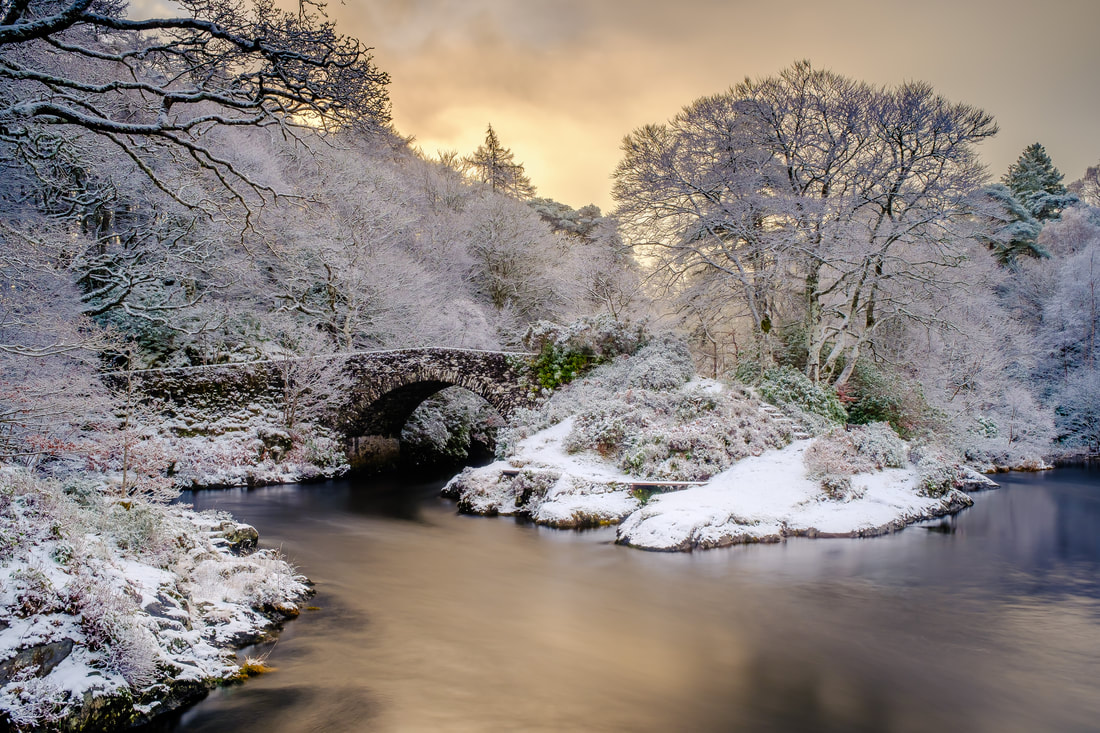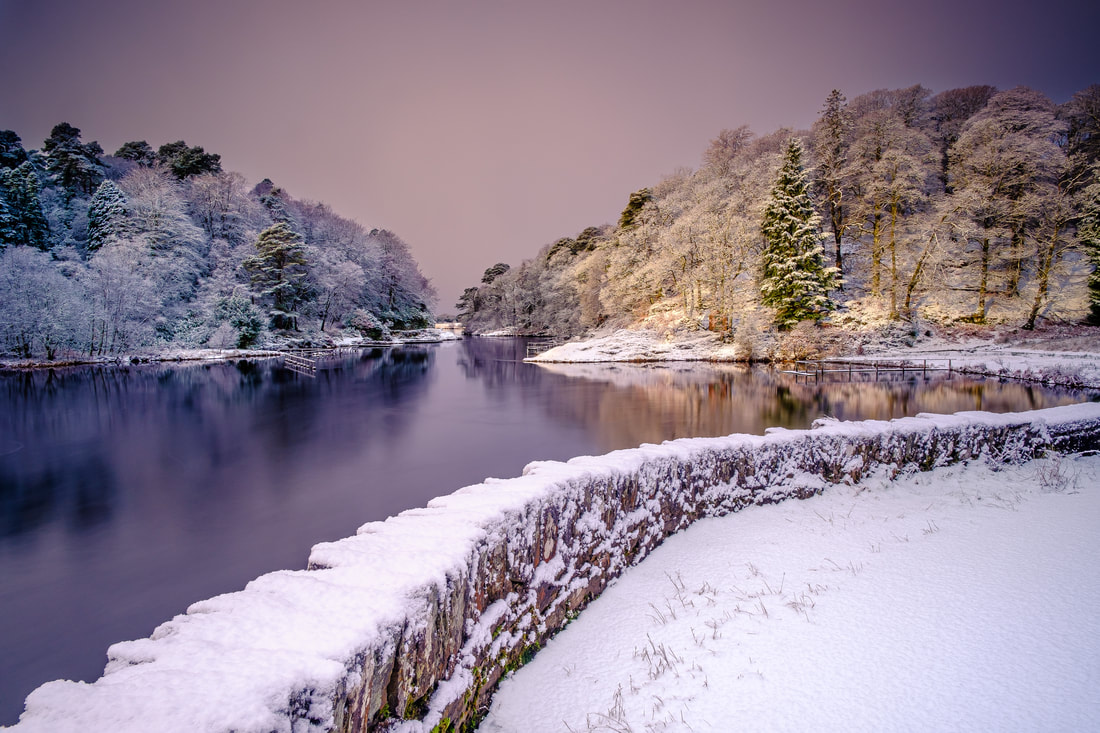|
It’s December, the first month of winter and despite the temperate oceanic climate we have here on the Peninsula, we have had some pretty cold weather and some snow falling down at low levels, but not quite as much as shown in the image below featuring snow covered trees around the Old Shiel Bridge. It is also just over a week until Christmas Day and peoples’ attention has now turned towards the festive celebrations and making preparation for gathering with friends and family. However, you may be surprised to know that such celebrations are a relatively recent occurrence, and that Christmas was banned in Scotland for almost 400 years Celebrations at this time of the year all started back in the Neolithic period, or New Stone Age, when Celtic Pagans celebrated the Winter Solstice. It falls on, or around the 21st of December each year and marks the shortest day of the year and the celebrations were held to appease the gods to allow the sun to return and have the days get longer, warmer and brighter. About 3000 years later, in the late 700s AD, the Vikings began raiding Scotland, eventually beginning to settle here from the 8th century onwards. In doing so, they brought their own way of celebrating the Winter Solstice, which they referred to as Jól and became known as Yule. Their Yule celebrations would last for around 12 days, during which they would light bonfires, tell stories, drink ale and make sacrifices to the gods to earn blessing on the crops that would be grown when the warmer days returned. As Christianity arrived, Yule gradually became the Christian celebration that we now refer to as Christmas and Yule celebrations were held in all parts of Scotland where the Catholic Church held authority. Then, in 1560, Scotland split from the Catholic Church and formed the Presbyterian Church of Scotland (the Kirk) in what was known as the Scottish Reformation. With this, came a change in religious thought, and any activity that could be seen as extravagant, or as celebrating superstitious ideals, was heavily frowned upon. This included the celebration of Yule and finally, after years of increasing discord, the Scottish Parliament passed a law in 1640 that made celebrating the ‘Yule vacations’ illegal. The ban remained in place until 1712, when it was officially repealed, but the powerful Kirk continued to frown upon any festive celebrations. In these times there was no public holiday on Christmas Day and punishments for singing Christmas carols, baking Yule bread and any other such things were extremely harsh. It was because of this that Hogmanay and New Year celebrations became so important in Scotland.
This situation continued for many years until a change in attitudes most likely caused by the commercialisation of Christmas, led to Christmas Day becoming a public holiday in 1958 and Boxing Day eventually becoming a public holiday in 1974. Some argue that this commercialisation was driven by the introduction of UK wide television broadcasting in the early 1950s and that that the pace of it increases year on year. It certainly does seem like we see Christmas decorations and sales promotions appearing earlier each year. The way we celebrate Christmas has also changed. It has moved away from religiously oriented traditions that were deeply rooted in Christianity and Viking culture, becoming more of a secular event in recent years, where the focus seems to be less religious and more about spending time with friends and family. However, whatever your views are on what Christmas should and shouldn’t be, the 25th of December 2022 will only be Scotland’s 65th Christmas holiday in 382 years, so I wish you all a Blythe Yule and hope that it brings happiness and joy to you and your family.
10 Comments
|
AuthorHi, Archives
July 2024
Categories
All
|
Steven Marshall Photography, Rockpool House, Resipole, Strontian, Acharacle, PH36 4HX
Telephone: 01967 431 335 | Mobile: 07585 910 058 | Email: [email protected]
Telephone: 01967 431 335 | Mobile: 07585 910 058 | Email: [email protected]
All Images & Text Copyright © 2024 - Steven Marshall - All Rights Reserved



